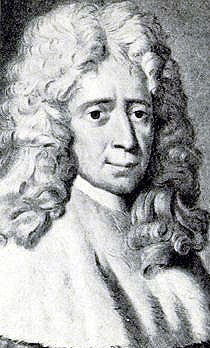Charles Louis Montesquieu nejznámější citáty
Charles Louis Montesquieu: Citáty o lidech
Charles Louis Montesquieu: Citáty o ženách
„U mladých žen nahrazuje krása ducha, u starých duch krásu.“
z díla Pensées
Originál: (fr) Dans les jeunes femmes, la beauté supplée à l'esprit. Dans les vieilles, l'esprit supplée à la beauté.
Zdroj: Magazín Dnes 42/2007
Charles Louis Montesquieu citáty a výroky
„Zbytečné zákony oslabují zákony nutné.“
z díla L’Esprit des lois
Originál: (fr) Les lois inutiles affaiblissent les lois nécessaires.
„Evropa je stát složený z několika provincií.“
z díla Pensées
Originál: (fr) L'Europe est un Etat composé de plusieurs provinces.
Charles Louis Montesquieu: Citáty anglicky
As quoted in A Dictionary of Thoughts : Being a Cyclopedia of Laconic Quotations from the Best Authors, Both Ancient and Modern (1891) edited by Tryon Edwards.
No. 104. (Usbek writing to Ibben)
Lettres Persanes (Persian Letters, 1721)
Quoted by Thomas Erskine in the trial of Thomas Paine, 1792
No. 66.
Lettres Persanes (Persian Letters, 1721)
No. 60. (Usbek writing to Ibben)
Lettres Persanes (Persian Letters, 1721)
“Not to be loved is a misfortune, but it is an insult to be loved no longer.”
No. 3. (Zachi writing to Usbek)
Lettres Persanes (Persian Letters, 1721)
Book XI, Chapter 6.
The Spirit of the Laws (1748)
Zdroj: Esprit des lois (1777)/L11/C6 - Wikisource, fr.wikisource.org, fr, 2018-07-07 https://fr.wikisource.org/wiki/Esprit_des_lois_(1777)/L11/C6,
“I have read descriptions of Paradise that would make any sensible person stop wanting to go there.”
No. 125. (Usbek writing to Rhedi)
Lettres Persanes (Persian Letters, 1721)
“Raillery is a mode of speaking in favor of one's wit at the expense of one's better nature.”
La raillerie est un discours en faveur de son esprit contre son bon naturel.
Pensées Diverses
No. 46. (Usbek writing to Rhedi)
Lettres Persanes (Persian Letters, 1721)
No. 65. (Usbek writing to his wives)
Lettres Persanes (Persian Letters, 1721)
“I can assure you that no kingdom has ever had as many civil wars as the kingdom of Christ.”
No. 29. (Rica writing to Ibben)
Lettres Persanes (Persian Letters, 1721)
No. 19. (Usbek writing to Rustan)
Lettres Persanes (Persian Letters, 1721)
“You have to study a great deal to know a little.”
Zdroj: Pensées et Fragments Inédits de Montesquieu (1899), I
“One must give one power a ballast, so to speak, to put it in a position to resist another.”
Book V, Chapter 14.
The Spirit of the Laws (1748)
Zdroj: Considérations sur les causes de la grandeur des Romains et de leur décadence/11 - Wikisource, fr.wikisource.org, fr, 2018-07-07 https://fr.wikisource.org/wiki/Consid%C3%A9rations_sur_les_causes_de_la_grandeur_des_Romains_et_de_leur_d%C3%A9cadence/11,
Zdroj: Montesquieu, Causes of the Greatness of the Romans, 2017-11-09, 2018-07-07 https://web.archive.org/web/20171109014358/http://www.constitution.org/cm/ccgrd_l.htm,
Zdroj: Considerations on the Causes of the Greatness of the Romans and their Decline (1876), Chapter XI.
“Life was given to me as a favor, so I may abandon it when it is one no longer.”
No. 76. (Usbek writing to Ibben)
Lettres Persanes (Persian Letters, 1721)
“There is no greater tyranny than that which is perpetrated under the shield of the law.”
As quoted in With Prejudice : The Perspective of an Acquitted Defendent (2010) by Vicky Gallas; no earlier occurence of this phrasing has been located (Relevant quote: "Il n’y a point de plus cruelle tyrannie que celle que l’on exerce à l’ombre des lois et avec les couleurs de la justice" i.e. "There is no tyranny more cruel than that which is exercised within the shade of the law and with the colours of justice." See Chap. XIV of Considérations sur les causes de la grandeur des Romains et de leur décadence).
Disputed
No. 24. (Rica writing to Ibben)
Lettres Persanes (Persian Letters, 1721)
Si je savais une chose utile à ma nation qui fût ruineuse à une autre, je ne la proposerais pas à mon prince, parce que je suis homme avant d’être Français, parce que je suis nécessairement homme, et que je ne suis Français que par hasard
I.
Pensées et Fragments Inédits de Montesquieu (1899)
“I have always observed that to succeed in the world one should appear like a fool but be wise.”
J'ai toujours vu que, pour réussir dans le monde, il fallait avoir l'air fou et être sage.
Pensées Diverses
“A man should be mourned at his birth, not at his death.”
No. 40. (Usbek writing to Ibben)
Lettres Persanes (Persian Letters, 1721)
No. 86. (Usbek writing to Mirza)
Lettres Persanes (Persian Letters, 1721)
“The success of most things depends upon knowing how long it will take to succeed.”
Le succès de la plupart des choses dépend de savoir combien il faut de temps pour réussir.
Pensées Diverses
Horace et Aristote nous ont déjà parlé des vertus de leurs pères, et des vices de leur temps, et les auteurs de siècle en siècle nous en ont parlé de même. S'ils avaient dit vrai, les hommes seraient à présent des ours.
Pensées Diverses
No. 35. (Usbek writing to Gemchid)
Lettres Persanes (Persian Letters, 1721)
No. 66.
Lettres Persanes (Persian Letters, 1721)
No. 95. (Usbek writing to Rhedi)
Lettres Persanes (Persian Letters, 1721)
Commonly paraphrased as "An author is a fool who, not content with having bored those who have lived with him, insists on boring future generations".
No. 66. (Rica writing to * * *)
Lettres Persanes (Persian Letters, 1721)
